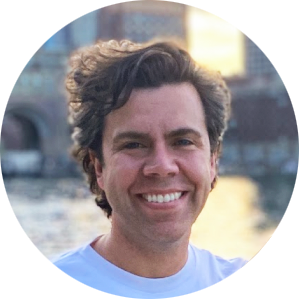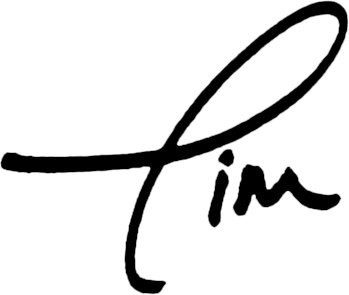Reducing mystery to belief
A faith life with hardened beliefs often turns stale; one that embraces mystery and wonder can be life-giving.

Somewhere along the line, my religious practice became stale. The problem, if I can give myself a little bit of credit, was not that I wasn’t checking the boxes. I really was — as I had been all my life — doing just about everything “right.”
In my native Latter-day Saint tradition, that means attending church services, living strict laws of health and sexuality, studying the Book of Mormon and the Bible, paying 10% of your income to the Church, doing additional worship in Latter-day Saint temples, and attesting to a list of things that you’re supposed to believe.
I was doing all that — and yet! It all felt stuck. These things I was doing and believing had lost the resonance that they had had when I was a child, a teenager, a missionary in western Uruguay, and a newly-married young adult. It felt, yes, stale — and after it was stale for a while, it became sour.
And to give a bit of a spoiler: I don’t feel that way anymore. For now, my faith life has regained a spark of life and a sense of growth and progress.
If a 22-year-old version of me were reading this article, he would assume that this positive change had been the result of the unearthing and repenting of some neglected sin, or perhaps more diligence in my religious study and prayer practice, or even some sort of rich spiritual experience that elevated my faith to new heights — in any case, some sort of “doubling down” that had taken me back to what I had previously felt was a rich and fulfilling spiritual life.
But that wasn’t it at all.
What has made the difference, for me, over these past several years is something unexpected: finding a new sense of spiritual wonder and surprise. And that was made possible by a fundamental shift from seeking to be even more “sure” about my beliefs to recognizing and embracing uncertainty.
I’ve often asked myself, since making this integral change, where I had gone wrong in the first place. Why did I start to feel stuck? I believe that I had, to borrow a phrase and an idea from Brian McLaren in his new book Do I Stay Christian?, “reduced mystery to belief” — and then I had made those beliefs the central aspect of my faith.
A defining feature — perhaps the defining feature — of our humanity, both as a species and as individuals, is what you might call evolution. We change, and grow, or we die.
By setting my beliefs in stone as a young person, I had unwittingly given myself a lifetime of stagnation and boredom. My goal, having been given a list of correct beliefs and practices, was simply to “endure to the end,” a goal that I’ve watched many wonderful people live for and achieve, but one that failed to inspire me and that I think is simply not enough for a generation jumping ship from their religious institutions at an unprecedented rate.
As I’ve regained this sense of mystery and wonder, I’ve been reinvigorated. I know far less than I “knew” about God, but I’m excited when I experience glimpses of something transcendent. God is now more mystery and awe than fixed belief.
My view has broadened and my posture toward other worldviews has lost its defensiveness; I’m delighted to discover people of great wisdom and faith who share their insights through any tradition or medium.
I am open and even look forward to cringing, years from now, when I read this article back: I hope that I will have changed enough that I see my own shortsightedness and small thinking, that I will be fully a “new creature” with a richer and more loving way of interacting with my fellow travelers and with the earth.
If you’re reading this, you may either feel or have felt stuck. So how can we regain a sense of mystery and wonder in our faith lives? If I may, I’ll offer three simple suggestions that have helped me:
- Find a community, however small, of people that live this way. If someone’s reaction to hearing new ideas, or even doubts, is openness, curiosity, and excitement, almost like a detective excited to dive into a mystery — then they are likely a candidate to be part of this community for you.
- Absorb the wisdom of other great traditions. I believe that my own Latter-day Saint faith has many gifts to offer the world — just like the many others of the world have to offer us. Find and receive those gifts. A couple places to start are mentioned in this interview Aubrey and I did with Michael Wilcox.
- Stop defining the end of your spiritual path. I have no interest in leading people out of their current religious institutions or healthy beliefs. I’ve found this reinvigoration within Mormonism. But feeling like you know what “the end” looks like, or even what the next 10-50 years will look like, can be suffocating. Accept that your future self, given the essential ongoing ingredients of curiosity and good will, will know more than your current self. Allow your life to unfold naturally — let the future be a mystery.
At one point or another, most of us have defined our religious lives by our beliefs. And I do think Brian McLaren is right when he calls that a “reduction.” We know less than we think we do. Embracing the bigness and weirdness of the universe leads us to something truly invigorating and life-giving: a mystery that we may never solve, but that will offer wonder and joy as we move ever closer.
—
Finally: in the spirit of David French, who always shares music at the end of his articles, I’m sharing a great and haunting song by the British band Oh Wonder that encourages me to move toward mystery:
Thanks so much for reading,


About the author
I’m an entrepreneur currently exploring the worlds of faith and technology. I graduated from Brigham Young University in 2008 and Harvard Business School in 2015.
I co-host the Faith Matters podcast and write a newsletter here on timchaves.com.
If you liked this article, please consider subscribing to my newsletter; I'll send new articles to your email when I write them.
It's free, and I'll never share your email. You can unsubscribe any time.